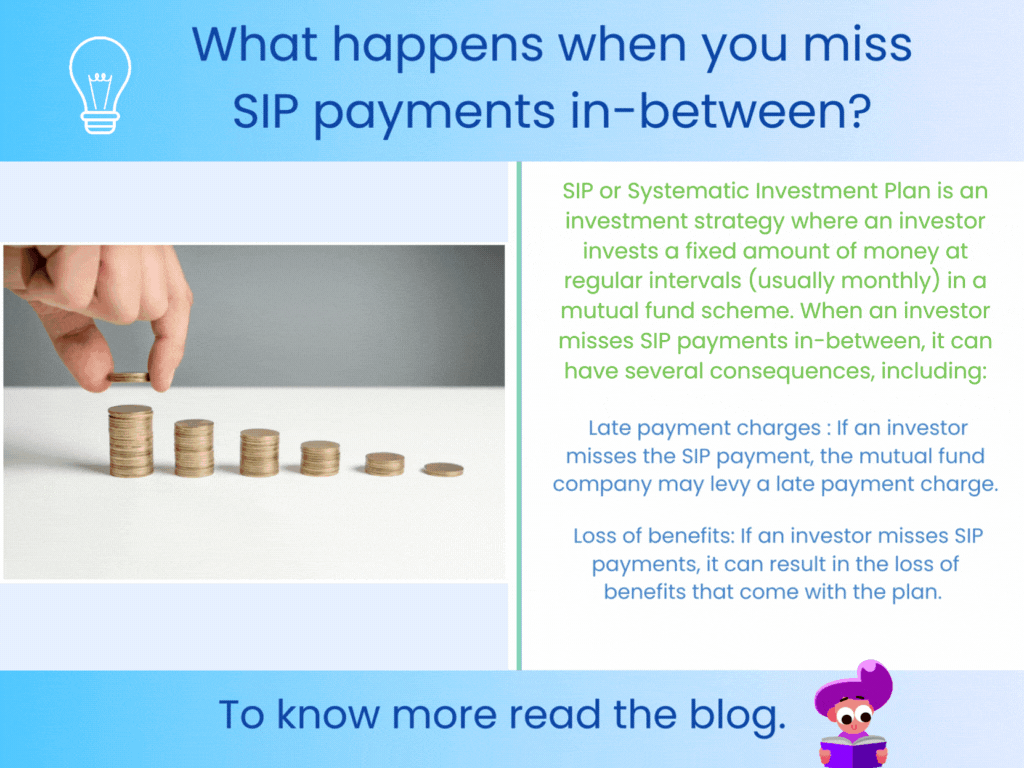What happens when you miss SIP payments in-between?
SIP or Systematic Investment Plan is an investment strategy where an investor invests a fixed amount of money at regular intervals (usually monthly) in a mutual fund scheme. When an investor misses SIP payments in-between, it can have several consequences, including:
Late payment charges: If an investor misses the SIP payment, the mutual fund company may levy a late payment charge. The late payment charge can vary from one mutual fund company to another.
Default: If an investor misses multiple SIP payments, the mutual fund company may consider it a default. A default can have serious consequences, such as the cancellation of the SIP or the redemption of the units allotted earlier.
Loss of benefits: If an investor misses SIP payments, it can result in the loss of benefits that come with the plan. For instance, some SIP plans offer loyalty benefits or bonus units to investors who stick to the plan for a certain period.
Loss of compounding: Regular SIP payments allow investors to benefit from the power of compounding. If an investor misses SIP payments, it can lead to a loss of compounding benefits.
Lower returns: If an investor misses SIP payments, it can lead to lower returns on their investment. This is because they would have missed out on the opportunity to invest in the market during the missed SIP payments.
In summary, missing SIP payments in-between can have several negative consequences for an investor, including late payment charges, default, loss of benefits, loss of compounding, and lower returns. It is always recommended to adhere to the SIP payment schedule to ensure that the investment goals are met.


